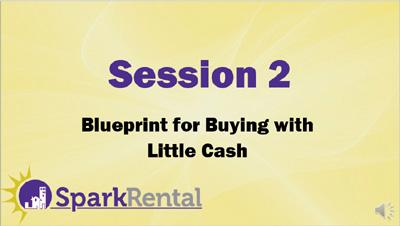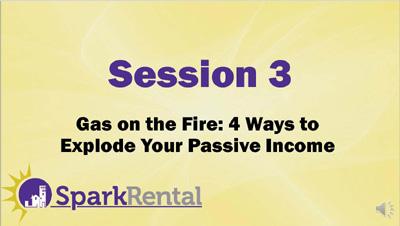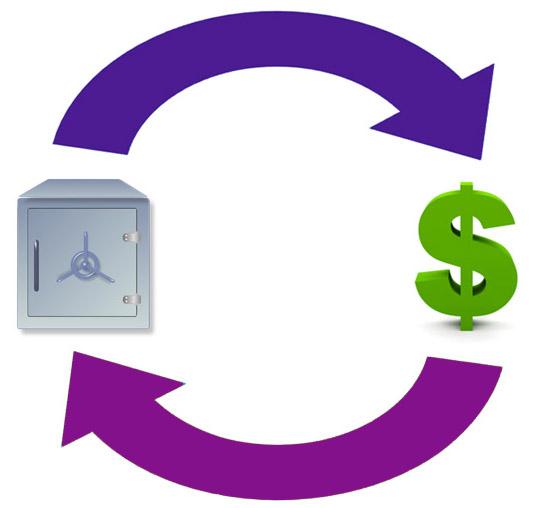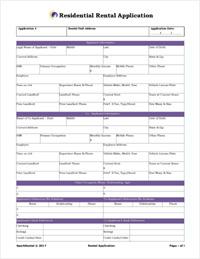 New Jersey may be a beautiful state with gorgeous shorelines and rolling farms, however the laws heavily favor tenants over landlords. More the reason to learn, read and know all that you possibly can. Many owners of buy-and-hold real estate do not even realize that it is required to complete a certificate of registration, right at the beginning of your first tenancy. Nor does it end at registration: within 30 days of each new landlord tenant leasehold, you must give each tenant a copy of that registration!
At a Glance:
Late Fees: Late fees must be reasonable and outlined in the lease in order to be considered additional rent.
Security Deposit: Limited to an amount equal to one and a half month’s rent. This includes pet deposits.
Returned Payment Fee Limit: There is no maximum provision in the law.
Notice to Enter: No minimum notice stated, however, entrance requirements must be listed in the lease.
Late Fee/Returned Check Fee:
Late fees must be outlined in the lease agreement. There are no maximum limits, however, to not be considered exorbitant, it should be reasonable. Late rent is considered as late when it is not received on or before the date in the lease. There is an exception for senior citizens whom are entitled to at least five business days before a late charge may be assessed.
Security Deposits:
Aside for properties occupied by the owner, consisting of two or three units, all security deposits are limited to no more than an amount equal to one and a half of a month’s rent. This includes pet deposits and prepaid funds. If a security deposit is taken, the tenant must receive a written receipt including: 1. Name and address of financial institution, 2. Current interest rate, and 3. the total amount of the security deposit.
New Jersey Security Deposit Law provides that the Landlord is required to be paid to the tenant, annually.
After the tenant moves out of the rental property, the entire amount plus any interest must be returned. If any deductions are made, then whatever is left over, as applicable shall be given to the tenant with a statement of the subtractions. This must be done within 30 days from the time the tenant vacates. Only physical damage, non-payment of rent or fees may be deducted.
Notification shall be sent either by personal delivery, or registered or certified mail.
Maintenance:
According to New Jersey’s “Habitability Bulletin”, landlord must provide tenants with a safe and clean property. Between the dates of October 1 thru May 1, all rooms that are occupied must be able to maintain a temperature of at least 68 degrees Fahrenheit between 6 AM and 11 PM.
Right of Entry:
For the purpose of maintenance and repairs, and with reasonable notice, a landlord may enter the rented premises. Any other reasons must be stated in the lease agreement including notification specifications.
New Jersey may be a beautiful state with gorgeous shorelines and rolling farms, however the laws heavily favor tenants over landlords. More the reason to learn, read and know all that you possibly can. Many owners of buy-and-hold real estate do not even realize that it is required to complete a certificate of registration, right at the beginning of your first tenancy. Nor does it end at registration: within 30 days of each new landlord tenant leasehold, you must give each tenant a copy of that registration!
At a Glance:
Late Fees: Late fees must be reasonable and outlined in the lease in order to be considered additional rent.
Security Deposit: Limited to an amount equal to one and a half month’s rent. This includes pet deposits.
Returned Payment Fee Limit: There is no maximum provision in the law.
Notice to Enter: No minimum notice stated, however, entrance requirements must be listed in the lease.
Late Fee/Returned Check Fee:
Late fees must be outlined in the lease agreement. There are no maximum limits, however, to not be considered exorbitant, it should be reasonable. Late rent is considered as late when it is not received on or before the date in the lease. There is an exception for senior citizens whom are entitled to at least five business days before a late charge may be assessed.
Security Deposits:
Aside for properties occupied by the owner, consisting of two or three units, all security deposits are limited to no more than an amount equal to one and a half of a month’s rent. This includes pet deposits and prepaid funds. If a security deposit is taken, the tenant must receive a written receipt including: 1. Name and address of financial institution, 2. Current interest rate, and 3. the total amount of the security deposit.
New Jersey Security Deposit Law provides that the Landlord is required to be paid to the tenant, annually.
After the tenant moves out of the rental property, the entire amount plus any interest must be returned. If any deductions are made, then whatever is left over, as applicable shall be given to the tenant with a statement of the subtractions. This must be done within 30 days from the time the tenant vacates. Only physical damage, non-payment of rent or fees may be deducted.
Notification shall be sent either by personal delivery, or registered or certified mail.
Maintenance:
According to New Jersey’s “Habitability Bulletin”, landlord must provide tenants with a safe and clean property. Between the dates of October 1 thru May 1, all rooms that are occupied must be able to maintain a temperature of at least 68 degrees Fahrenheit between 6 AM and 11 PM.
Right of Entry:
For the purpose of maintenance and repairs, and with reasonable notice, a landlord may enter the rented premises. Any other reasons must be stated in the lease agreement including notification specifications.
Free Video Training: Passive Income from Rentals
When to Send Notice to End Lease:
When the tenant or landlord wants to end the leasing agreement and there is a:
- Fixed lease: It will just end on the last day. No prior notice is needed unless the written lease says otherwise.
- Yearly Lease (with no end date): This kind of arrangement will require 3 months’ prior notice to end the lease.
- Month to Month: These periodic leases require one month notice.
- Week to Week: A weekly lease arrangement requires a 7-day notice.
Eviction:
New Jersey evictions can be complicated. Make sure that you have all your ducks in a row and if you have any doubts on how to proceed, make sure you get professional legal counsel.
IMPORTANT: In New Jersey, the landlord does not have to provide a notice to the tenant for non-payment of rent before filing in court for eviction. Unless it is for a senior citizen, in which case, a
5-DAY notice is required.
Other lease violations will need a 30-day notice except for disorderly conduct or destruction of property, which only necessitates 3 days.
When dealing with a habitually late paying tenant, landlord may serve that tenant with a 30-day notice to vacate. If tenant fails to vacate on or before the end of the 30 days, the landlord may file in court for eviction.
All other lease violations (except for disorderly conduct, criminal activity, gross negligence or causing property damage), have a two-step process. First,a notice is sent to the tenant who has committed a violation of the lease (other than for non-payment of rent). It requires the tenant to remediate the issue or face eviction. If the tenant fails to comply, a second notice is sent for tenant to quit (vacate the premises) or face eviction.
For tenants who commit disorderly conduct, criminal activity, gross negligence or property damage, a 3-Day Notice To Quit is required. This does not require that the tenant fix the issue, only that the tenant either vacate the premises within 3 days or face eviction proceedings.
Questions? Ask an Attorney!
Have questions about Michigan’s landlord-tenant laws? We have you covered. Ask in the box below, to have your questions answered by living, flesh-and-blood attorneys!
























